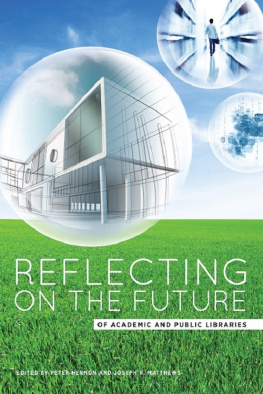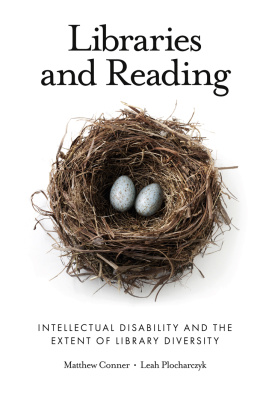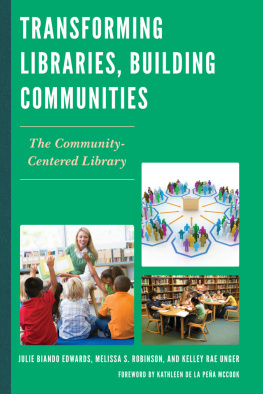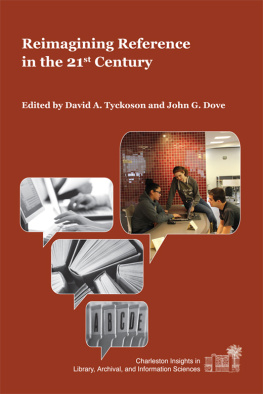
S TUDIES IN A MERICAN P OPULAR
H ISTORY AND C ULTURE
Edited by
Jerome Nadelhaft
University of Maine
A R OUTLEDGE S ERIES
S TUDIES IN A MERICAN P OPULAR
H ISTORY AND C ULTURE
J EROME N ADELHAFT , General Editor
C RIME AND THE N ATION
Prison Reform and Popular Fiction inPhiladelphia, 17861800
Peter Okun
F OOD IN F ILM
A Culinary Performance ofCommunication
Jane Ferry
D ECONSTRUCTING P OST -WWII N EW Y ORK C ITY
The Literature, Art, Jazz, andArchitecture of an Emerging GlobalCapital
Robert Bennett
R ETHINKING THE R ED SCARE
The Lusk Committee and New York'sCrusade against Radicalism,19191923
Todd J. Pfannestiel
H OLLYWOOD AND THE R ISE OF P HYSICAL C ULTURE
Heather Addison
H OMELESSNESS IN A MERICAN L ITERATURE
Romanticism, Realism, and Testimony John Allen
N O W AY OF K NOWING
Crime, Urban Legends, and the Internet
Pamela Donovan
T HE M AKING OF THE P RIMITIVE BAPTISTS
A Cultural and Intellectual History of the Antimission Movement, 18001840
James R. Mathis
W OMEN AND C OMEDY IN S OLO P ERFORMANCE
Phyllis Diller, Lily Tomlin, and Roseanne
Suzanne Lavin
T HE L ITERATURE OF I MMIGRATION AND R ACIAL F ORMATION
Becoming White, Becoming Other,Becoming American in the LateProgressive Era
Linda Joyce Brown
P OPULAR C ULTURE AND THE E NDURING M YTH OF C HICAGO , 18711968
Lisa Krissoff Boehm
A MERICA's F IGHT O VER W ATER
The Environmental and Political Effectsof Large-Scale Water Systems
Kevin Wehr
D AUGHTERS OF E VE
Pregnant Brides and Unwed Mothers in Seventeenth-Century Massachusetts Else L. Hambleton
N ARRATIVE, P OLITICAL U NCONSCIOUS AND R ACIAL V IOLENCE IN W ILMINGTON , N ORTH C AROLINA
Leslie H. Hossfeld
V ALIDATING B ACHELORHOOD
Audience, Patriarchy, and CharlesBrockden Brown's Editorship of the
Monthly Magazine and American Review
Scott Slawinski
C HILDREN AND THE C RIMINAL L AW IN C ONNECTICUT , 16351855
Changing Perceptions of Childhood
Nancy Hathaway Steenburg
B OOKS AND L IBRARIES IN A MERICAN S OCIETY DURING W ORLD W AR II
Weapons in the War of Ideas
Patti Clayton Becker
BOOKS AND LIBRARIES IN AMERICAN
SOCIETY DURING WORLD WAR II
WEAPONS IN THE WAR OF IDEAS
Patti Clayton Becker
Routledge
New York & London
Published in 2005 by
Routledge
270 Madison Avenue
New York, NY 10016
www.routledge-ny.com
Published in Great Britain by
Routledge
2 Park Square
Milton Park, Abingdon
Oxon OX14 4RN
www.routledge.co.uk
Routledge is an imprint of the Taylor & Francis Group.
Printed in the United States of America on acid-free paper.
Copyright 2005 Routledge
All rights reserved. No part of this book may be printed or utilized in any form or by any electronic, mechanical or other means, now know or hereafter invented, including photocopying and recording, or any other information storage or retrieval system, without permission in writing from the publisher.
Library of Congress Cataloging-in-Publication Data
Becker, Patti Clayton, 1951-
Books and libraries in American society during World War II : weapons in the war of ideas / Patti Clayton Becker.
p. cm. -- (Studies in American popular history and culture)
Includes bibliographical references and index.
ISBN 0-415-97179-9 (hardback : alk. paper)
1. Libraries and society--United States--History--20th century. 2. World War, 19391945--Libraries. 3. Public libraries--United States--History--20th century. 4. American Library Association--History--20th century. I. Title. II. Series: American popular history and culture (Routledge (Firm)
Z716.4.B37 2005
021.209730904--dc22 2005018027
Table of Contents
Born of a suggestion made in a graduate seminar, this study is a revision of my doctoral dissertation completed at the School of Library and Information Studies (SLIS) of the University of Wisconsin-Madison. I owe my greatest debt to my advisor, Professor Wayne A. Wiegand, a wise and helpful guide and an excellent editor. I also benefited greatly from the comments and suggestions of other UW-Madison faculty members: SLIS Professors Louise Robbins and Dianne Hopkins; Professor John M. Cooper, Jr., of the History Department; and Professor Stephen Vaughn of the School of Journalism and Mass Communication. However, I take full responsibility for any remaining errors of fact or interpretation.
In the two weeks I spent at the archives of the American Library Association at the University of Illinois at Urbana-Champaign, Jo Ann Jacoby and Elizabeth Cardman were invaluable guides to the most important storehouse of primary source material used in this study. Friends Annie Copeland and Bill Brockman provided comfort, companionship, and gourmet cuisine during my visits. Unfortunately, I did not obtain names of everyone who helped me at numerous other archives and libraries, but I thank them nonetheless.
Several University of Wisconsin-Stevens Point library staff and faculty provided critical help, including but not limited to: Christine Neidlein and Colleen Angel of Interlibrary Loan; Sara Weisensel of Periodicals; Marg Whalen of Government Documents; Barbara Paul of Cataloging; Nerissa Nelson of Reference; David Timm of Information Technology; and Arne Arneson, Library Director, as well as William Skelton and Susan Brewer of the History Department. A new faculty grant awarded by the UWSP University Personnel Development Committee funded a portion of my research.
I am grateful to my mother, Lorraine Clayton, for telling me to look it up when I asked her questions as a child. That advice, combined with my love of reading, led me to become a librarian. My siblings Beverly and Geoffrey Clayton provided moral support. George and Sylvia Becker, my in-laws, served as role models for academic excellence and achievement. And last, but not least, thanks to my husband David Becker. Patient, loving, and a most willing research assistant, I could not have done it without him. I dedicate this book to him.
Patti Clayton Becker
University of Wisconsin-Stevens Point Library
Books gained great prestige during the war. They were used in extraordinary ways and in very large numbers. Somebody should write a book on the subject.
Carl H. Milam
Since its establishment in the mid-nineteenth century, the tax-supported, free public library has become a fixture in American communities of all sizes. Often occupying central downtown locations, libraries are frequently housed in impressive-looking buildingsimposing frontages on important streets Librarian of Congress Archibald MacLeish called them. Yet despite their prevalence and general acceptance as prominent municipal institutions, public libraries have been plagued by the problem of purpose.
Over the years library literature has proclaimed educational, social, and cultural functions for the public library in a quest for definition, meaning, and importance. Central to most claims is the assumption that all community members will benefit, even if indirectly, from public library services and books. But although the library relies primarily on a community's tax dollars and exists to serve its entire population, historically only a fraction of its residents have used their community's library, and then mostly for enjoyment or recreation, not education.






